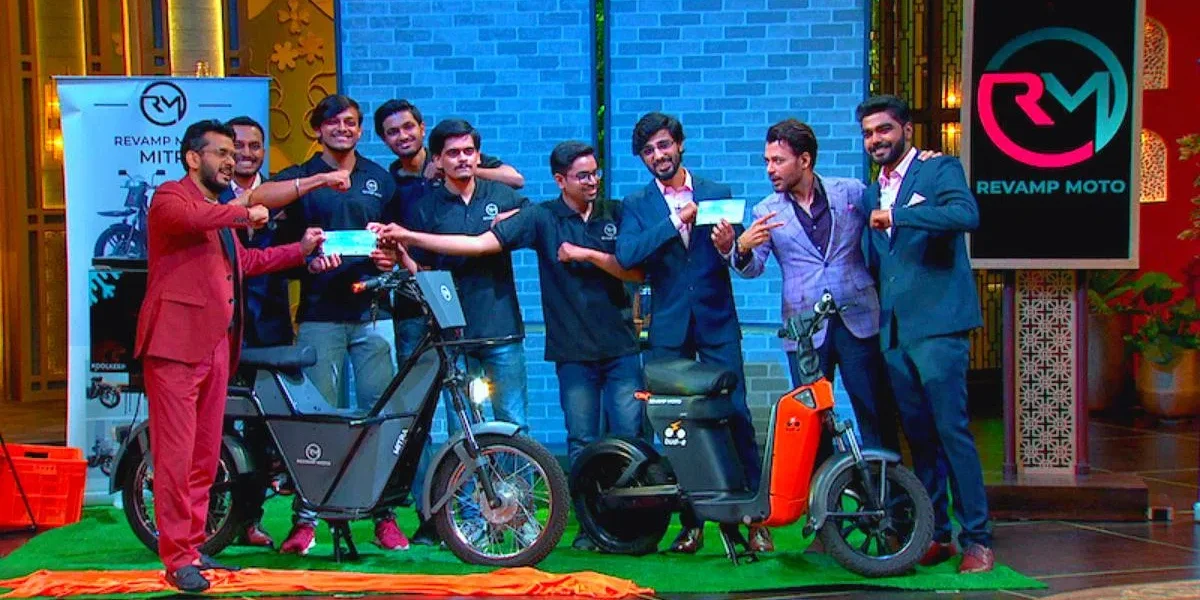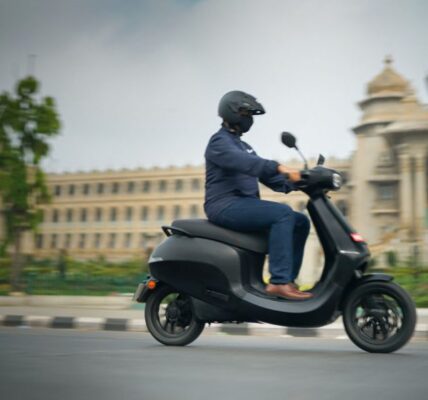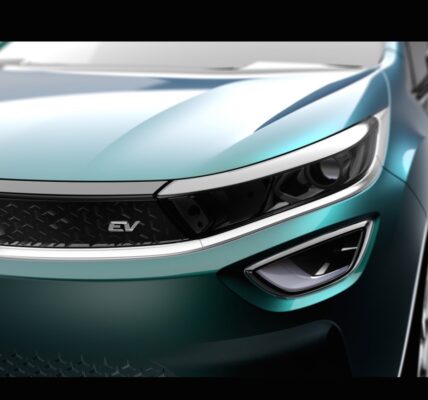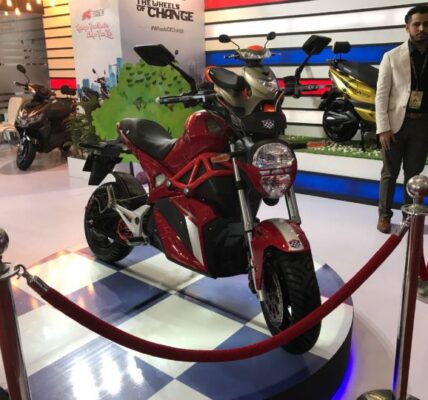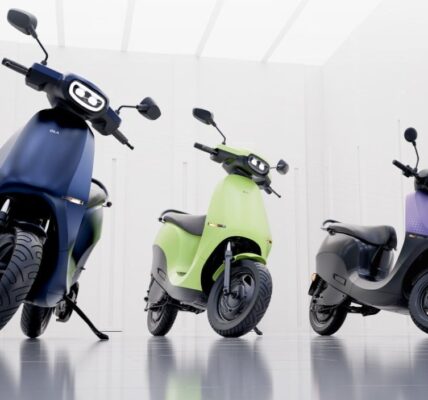Revamp Moto — a Nashik-based manufacturer of electric two-wheelers that won over investors on Shark Tank India in December 2021 — recently announced the launch of “India’s first transformable EV” called the RM Buddie 25.
The startup, which calls itself a “modular electric vehicle (EV) company”, announced that the Buddie has been completely built in-house with all the components sourced locally except for lithium-ion cells.
The process of manufacturing the Buddie will soon commence at the venture’s facility in the Thane district and will be available to customers at prices starting from Rs 66,999. According to their press release, the Buddie is powered by an IP 67-rated smart BMS (battery management system) and CAN (controller area network)-enabled 48V, 25Ah lithium-ion battery pack.
This battery pack allows the electric two-wheeler to travel 70 km on a single charge with a top speed of 25 km/h. Going further, the startup has developed and manufactured the battery packs in-house which are “easily swappable” within a minute. The Buddie charges from 0-80% in 1 hour 45 minutes, is smartly connected and can map more than 50 parameters through your smartphones “to make your commutes comfortable”, claims the startup in their release.
Emphasising the same, Buddie does not require a license or registration to be driven.
Pritesh Mahajan, Co-Founder and CEO of Revamp Moto, claims that the Buddie addresses the requirements of not just regular users “but also has looked at the needs of people who are always on the move and use their vehicle in more than one way.”
The Buddie comes with a payload capacity of 120 kg and is accompanied by “swiftly and easily swappable attachments” like a child seat, saddle stay and saddle bags, insulated box, carrier, base plate and base rack.
So, what does the startup mean when they claim that the Buddie is “India’s first transformable EV”? Here’s what Pritesh has to say —
“As Indians, we are known for our ‘jugaad’. A significant chunk of people using two-wheelers in India uses their vehicles for more than just mobility — from carrying goods to setting up shops on two wheels. All of this is actualised using makeshift solutions risking their own safety. We decided to address this problem by providing swappable attachments that could cater to the varying needs of the customers, making our vehicles a truly transformable EV,” says Pritesh.
“Our attachments are such that you could change the utility of the vehicle in under 30 seconds. You could be carrying your groceries with the saddlebags attachment, and the very next moment you could swap the attachment with a child seat to carry your kid to school. This is how we wish to empower our customers with our ‘Transformable EVs’. Your vehicle should be able to adapt to your needs; it is a vehicle that can multitask with its wide range of attachments,” he adds.
Another important claim the startup makes is that they are not like any other EV manufacturer in India. They call themselves a “modular EV company”. What do they mean by it?
“Every product that we wish to offer to the market is built keeping in mind how maximum utility can be derived from it. With RM Buddie 25, we want our customers to be able to do much more than just travel from point A to point B. We wanted to provide a premium ride that could adapt to their varying daily use cases. As a CMVR (Central Motor Vehicles Rules, 1989)-exempted vehicle that does not need a license or registration, the Buddie can empower homemakers, senior citizens and smart teenagers to be independent in their own right,” says Pritesh.
The purchase window for the Buddie opened on 16 December, 2022, and deliveries are expected to commence by April 2023. Before commencing on deliveries, Revamp will soon be commencing trials of Buddie in multiple cities across the country — for users to have a firsthand experience of the transformable EV’s performance along with its attachments.
The manufacturing will take place in their Bhiwandi facility which they claim can cater to over 1.5 lakh units annually.
The startup — founded by Pritesh Mahajan, Jayesh Tope and Pushkaraj Salunke in January 2021, first approached Shark Tank India in March 2021 and appeared on the show in December.
“As entrepreneurs, it was a dream come true for all the co-founders at Revamp since we had always been keen followers of Shark Tank (globally). The overall experience of delivering our pitch in the tank gave us a massive sense of validation of our product and the core modular concept that we built the company upon. The fact that all the ‘sharks’ wanted a bite of our vision gave us an incredible boost to drive forward with all the more confidence,” recalls Pritesh.
At the show, they raised funding amounting to Rs 1 crore from Aman Gupta, co-founder of boAt, and Anupam Mittal, founder of People Group, for 1.5% equity. After the show, however, other sharks like Ashneer Grover and Peyush Bansal also came in to invest Rs 50 lakh each.
“Currently, we have four ‘sharks’ — Aman Gupta, Anupam Mittal, Ashneer Grover and Peyush Bansal — with us as investors. They have given us constant guidance and support, besides helping us get in touch with multiple market stakeholders who have helped us grow the company rapidly. We have had external funding of $1 million previously from the ‘sharks’, multiple Indian VC firms and angel investors. We are actively raising $3 million currently from Indian as well as international investors,” he adds.
As an interesting aside, Revamp is India’s first EV two-wheeler startup to launch its product ‘Buddie’ in the Metaverse. Buyers can look for details of the launch in the Metaverse through Revamp’s handles on YouTube, LinkedIn, Twitter, Instagram, Facebook and Spatial.
“Revamp is building solutions for the immediate needs in the market with a vision for the future. Metaverse as a concept is still at its nascent stage and is yet to be widely adopted in India. But we are positive of a future where the lines between a physical store and a virtual experience centre are blurred. Revamp wanted to be the first EV company to be part of this transition,” says Pritesh.


